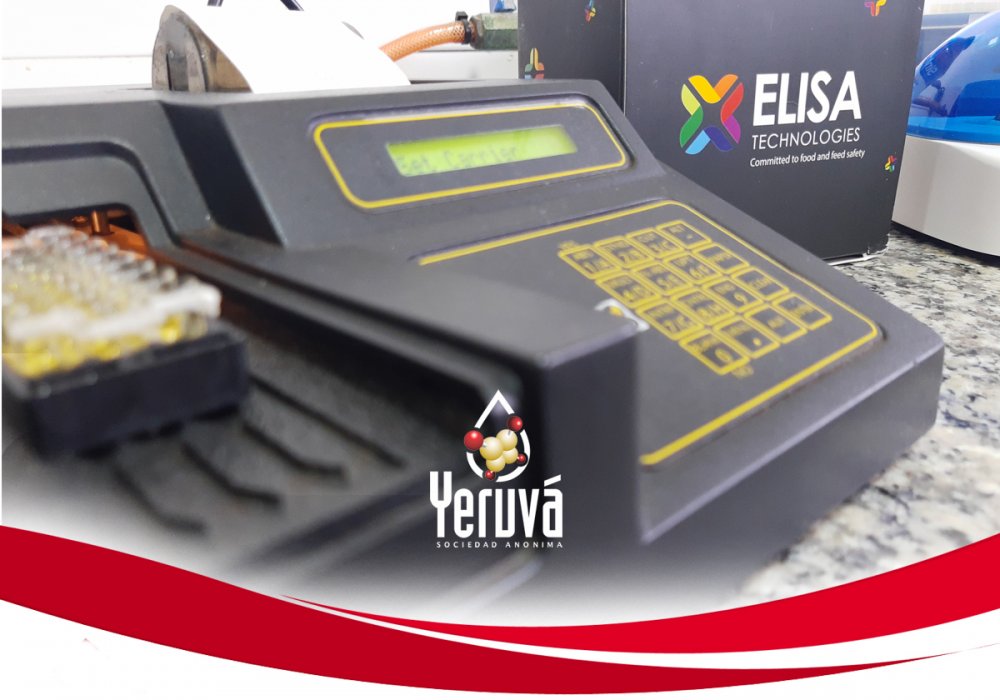
The raw material and functional Nutrient processing industry, organizations and government agencies around the world currently demand the identification of species in order to assure the manufacturing companies that the raw materials that make up their formulations are safe, healthy, and free. of adulterations The prevention of adulteration of blood products by mixing species is of great relevance for economic, regulatory, sanitary, ethical and cultural reasons.
In that sense YERUVA S.A. has incorporated into its Quality System the control and determination of species, in order to assure its customers the genuineness of the Blood Products that it produces.
This identification is carried out by the Enzyme Immunoanalysis (Enzyme-linked Immunosorbent Assay) method known as the "Elisa Test" (Enzyme-Linked ImmunoSorbent Assay), a test that was developed by the Central Laboratory of YERUVA S.A. to qualitatively determine the content (presence or absence) of species in Blood Flours, Plasma Powder and Hemoglobin Powder. This was done jointly with the company R-Biopharm Latin America, who accompanied the process of validating the method and trained the technical staff.
The test technique and the material used by Yeruvá in this determination are included in the USDA-FSIS Microbiology Laboratory Guide (PCP 2-COA ED No. 002), and its rationale is based on antibodies generated against glycoproteins of meat origin, heat resistant and species specific. These test kits have been formatted and refined to meet or exceed USDA-FSIS protocols for species testing. In addition to the USDA, they are also recognized by SENASA (Argentina) for the identification of animal species that is validated by the Directorate of Laboratories and Technical Control (DILAB), with scope in raw materials and balanced feed for animal consumption. (http://www.elisa-tek.com/diagnostic-testing-kits/)
In this way Yeruvá S.A. strengthens its Quality Control System as part of the process of continuous improvement, adapting to the quality standards required by national and international markets; and by the laws that control food safety and safety.